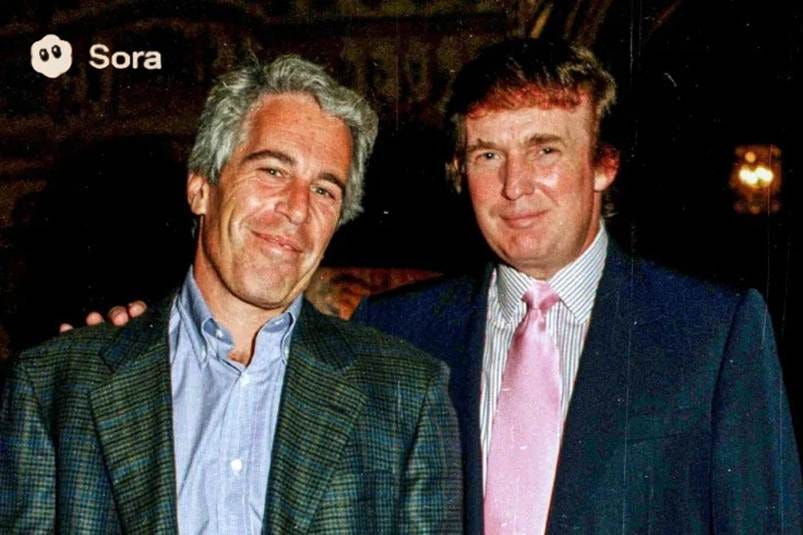Sora Is a Culture Erasure Machine
… and a vote for Trump

One year ago, I asked if OpenAI’s hype machine could drive down the economy.
I still think it can and it is. Concerningly, research firm MacroStrategy Partnership estimates that the AI bubble is 17 times larger than the dot-com bubble and 4 times larger than the 2008 global real estate bubble. But OpenAI is not only propping up the economy with groundless hype. It’s also trying to erase culture and sow doubts about reality. Enter the new video generation model Sora 2, which is accompanied by a social media app “Sora” where users can share and scroll 10-second AI-generated video clips.
By celebrating diluted copyright material aka nihilistic AI slop in a fast-paced and chaotic TikTok-like video feed, OpenAI is presenting an alternative universe where beloved figures, human experience and the creative expressions of others can be “remixed”, you know, ridiculed with a ChatGPT subscription. The not-so-subliminal message is that our cultural heritage is only good for laughter, that creations of the mind and the efforts going into them hold no significance or value, and that creative work can be freely abused by anyone, however they want and like.
Sora is a culture erasure machine. The success of OpenAI’s business model depends on braindead consumers who lack taste, independent thought and agency, just like the AI models they use. More broadly, the economy increasingly depends on useful idiots who don’t ask critical questions or reflect about things, live for dopamine hits and cheap laughs, don’t mind working for an AI agent, eat McDonald’s, meditate narcissistically, voted for Trump because he is funny and made a hilarious dance video on TikTok, and voted for Benjamin Netanyahu because they wanted him as babysitter for their children. Apparently, superintelligence is not only reached through raising the bar of artificial intelligence, but through lowering the bar of natural intelligence in society. The second part is what Sora 2 is all about.
OpenAI wants us to believe that creating AI slop can be a “social experience”, but it’s fundamentally anti-social. OpenAI needs people to be anti-social, because human resistance lies in communication, coordination and cooperation. Lesson number 12 in Timothy Snyder’s On Tyranny: “Make eye contact and small talk.” A large group of people who scroll on phones is not a community and is powerless to accomplish anything, really.
We also have to note that OpenAI is a dear partner to Trump. I will go so far as to say that a subscription to OpenAI is an indirect vote for Trump, and vice versa. Trump uses OpenAI’s products to ridicule opponents and push propaganda. OpenAI uses Trump for political influence and protection. That must be the reason why OpenAI feels comfortable to launch Sora 2 in the midst of multiple business-threatening copyright disputes and growing resistance from creatives and consumers alike.
OpenAI is drowning out pro-democracy voices and authenticity by delivering slop and making misinformation trivial. Trump is using the reality distortion mechanism as a distraction maneuver to cover up misdeeds and mismanagement of historical proportions. OpenAI depend on government-funded hype, and Trump depends on corporate-funded slop to keep the anti-intellectual party and the illiterate economy going. A win-win arrangement of sorts.
Below the paywall, we will take a more detailed look at Sora 2 and why it’s a walking copyright lawsuit that begs for the protection of an authoritarian government.







